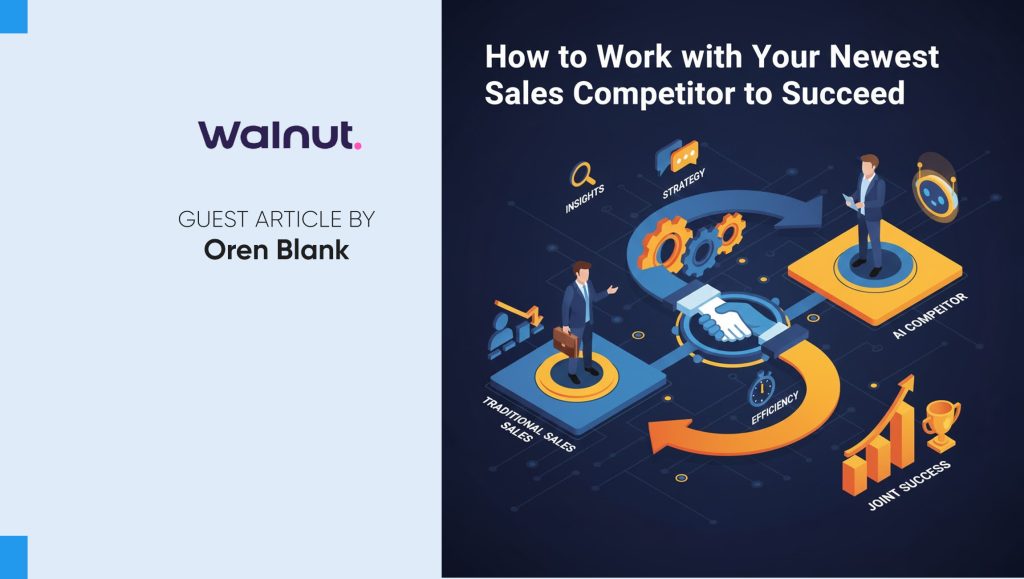Technological advancements have taken over every aspect of our lives and are making their way into every industry. Sales methodologies are evolving to accommodate the demand from modernization. There are new ways to find prospects and leads on a global level, approach clients through a digital platform to kickstart the sales pitch, new methods of client interaction and customer retention.
Companies in the B2B sector have been forced to practice different sales tactics since the covid breakout. The average sales tool kit has evolved from a package of introductory calls, complimentary lunches, in-person sales rep visits to the currently demanded packages of price quotes, convincing digital content, demos, and more…
Read More: SalesTechStar Interview with Matt Ferry, Chief Revenue Officer at Gramener
Latest sales technology and sales trends
-
Artificial intelligence software
Updating your sales tactics with AI-aided info is an application of predictive analytics. AI-generated information is based on multitudes of data related to the client (previous client interactions, client searches, niches, preferences, interests, etc.). It can be used on immediate analytics and action. The data and predictions from AI applications can be used manually for marketing, advertising and sales purposes to get a more refined and targeted reach.
-
Account-based marketing (ABM)
The traditional marketing methods involve generating brand awareness and visibility, personalizing and engaging with customers, and finally targeting prospect leads. The ABM methodology is a more targeted approach with significantly higher return on investment rates (ROI). ABM technologies help identify target customers more readily through data assimilation. By identifying the target customers and providing focused engagement, 87% of marketers have reported that ABM technology has a better outcome than traditional marketing.
-
Applications and mobile accessibility
The easier the business products and services are to access, the higher the customer retention rates. Creating applications for the company that can connect the customers to comfortable and accessible business experiences is essential as everyone relates a phone to accessibility. 75% of all internet traffic originates from mobile phones. Unofficial searches of the company are more likely to come from mobile phones. Hence encouraging customers to download the company app can help further personalize their experience and collect more data for predictive analytics. 26% of consumers search through branded apps. Providing an official application from the company can avoid confusion, increase reliability, and encourage direct contact.
-
User-generated content tools (UGC)
Promoting more user-generated content like feedback, reviews, outcome charts, etc., on websites, social media platforms, and apps increase credibility. It shows the prospective client a peek into the authenticity of the company’s services and data. It is a marketing strategy on its own. 70% of clients are more prone to conversion after encountering UGC.
-
Voice-controlled virtual assistants
Virtual assistants and voice-controlled apps, and other audio-based interactions are more advanced and give a cutting-edge assumption of the company’s technological advancements. It plays a role in putting the company in a good light in the eyes of prospective clients.
-
Content creation and social media marketing
84% of business leaders have claimed to visit social media before making a purchasing decision. Social media marketing plays a major role in elevating the company’s standards. It poses multiple opportunities to find leads, interact with clients, increase customer conversion rates, boost brand visibility and recognition, collect more data from clients, improve brand loyalty, all at cost-efficient means.
-
Chatbots
Chatbots are a form of conversational marketing. By incorporating chatbots in apps and websites, the company extends 24/7 assistance and gives suggestions. It can also gather data on user behavior. It is labor-efficient as 69% of chatbots can complete the required conversation with the prospective client and respond better.
-
Customer relationship management Platforms (CRM)
The modern customer is greatly invested in many digital forums (search engines, applications, social media). This is a major advantage to marketing specialists as information that can help improve marketing strategies is readily available. CRM is a method of personalization that meets with client intent. Through CRM, there is minimal loss of data and higher customer retention.
-
Internet of things management (IoT)
The IoT is an application of predictive analytics that exchanges data and tracks social media and website interactions. It is the method of collecting data from the internet to improve marketing strategies. It helps gain info on customer location, awareness, targeting, networking and predict customer expectations.
Despite the efficiency of chatbots and other AI interfaces in marketing, nothing beats human interference. All data and analytics and chatbot interfaces prove more efficient when handled by human interaction using the collected data in the best lights. Human-to-human interaction is the last deal sealing factor.
Read More: SalesTechStar Interview with Sunil Patro, Founder & CEO at Signeasy






















